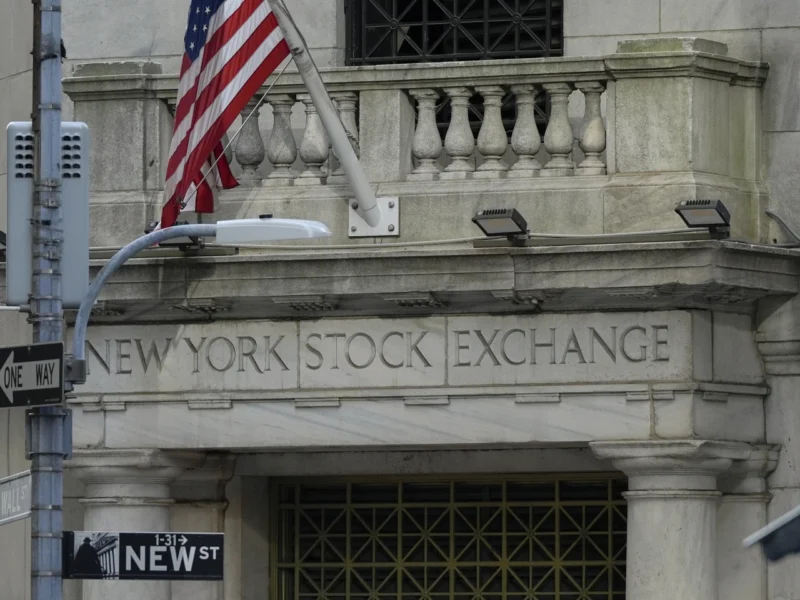U.S. stocks declined sharply on Friday as reports indicated concerns about President Donald Trump’s policies might be impacting the economy.
The S&P 500 dropped 1.7%, marking its worst day in two months. The Dow Jones Industrial Average fell 748 points (1.7%), while the Nasdaq composite slid 2.2%. Losses intensified throughout the day following weaker-than-expected economic data. One report suggested business activity in the U.S. is nearing a standstill, with growth slowing to its lowest in 17 months. S&P Global’s preliminary data indicated a contraction in the services sector, with many businesses citing uncertainty over government policies as a factor.
Chris Williamson, chief business economist at S&P Global Market Intelligence, noted that companies are increasingly worried about policy changes, including spending cuts, tariffs, and geopolitical issues. Uncertainty is affecting sales, while tariffs are driving up costs. Another report highlighted rising inflation expectations among consumers, partly due to potential tariffs that could increase import prices. A University of Michigan survey revealed that consumers now anticipate inflation to reach 4.3% in a year, up from last month’s 3.3%. Political affiliation also played a role, with independents and Democrats raising their inflation expectations, while Republicans showed a slight decline.
Additionally, sales of previously owned homes fell short of economists’ expectations, influenced by high mortgage rates and home prices. Despite Friday’s downturn, the stock market remains up for the year, and a recession is not widely expected. However, the reports raised concerns about the economy’s resilience, leading to broad losses across Wall Street.
Small-cap stocks, which are more sensitive to economic conditions, experienced steeper declines. The Russell 2000 index dropped 2.9%, leading market losses. Within the S&P 500, three-quarters of stocks declined, including major tech firms, airlines, and mining companies. Nvidia lost 4.1%, United Airlines fell 6.4%, and Newmont Mining declined 5.7%.
Akamai Technologies recorded the biggest drop in the S&P 500, plummeting 21.7% despite reporting higher-than-expected quarterly profits. Investors focused instead on its weaker revenue projections. Meanwhile, Celsius Holdings surged 27.8% after announcing its acquisition of Alani Nu, a beverage company targeting female consumers. Analysts viewed the $1.65 billion deal as a smart investment expected to enhance profitability. Defensive stocks, such as utilities, also gained, with American Water Works rising 3.1%.
By the end of the day, the S&P 500 fell 104.39 points to 6,013.13, the Dow dropped 748.63 points to 43,428.02, and the Nasdaq lost 438.36 points to 19,524.01.
Before the selloff, the S&P 500 had been mostly flat for the week, supported by strong corporate earnings. However, inflation concerns persist, limiting expectations for Federal Reserve rate cuts. While the Fed has kept rates steady after reducing them last year, officials at their January meeting signaled caution due to potential inflationary effects from Trump’s proposed tariffs and deportation policies.
Lower rates can stimulate economic growth but may also drive inflation higher. Treasury yields dropped following Friday’s weak economic data, with the 10-year yield falling to 4.42% from 4.51% on Thursday.
Global markets showed mixed results. European indexes fluctuated, while Asian markets mostly gained. Hong Kong’s Hang Seng surged 4%, led by a strong performance from Alibaba, which exceeded profit expectations and highlighted advancements in artificial intelligence.











